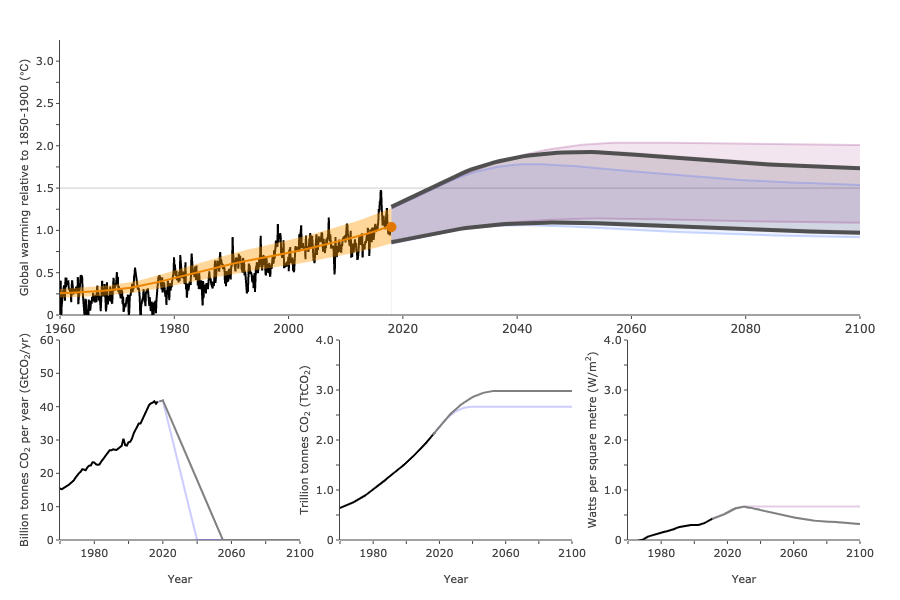Of all the things to talk about, why talk about the places where we live? Whether a city, town, suburb, or remote rural residence, the environments we live in define our lives. They constrain – or enable – the things we do, the people we see, the food we eat … you get the picture. But still – who cares? And why write about them right now?
In this post I’m going to try and convince you that, barring any commitments you may have made to a myopic nihilism, you care about the built environment, and urban spaces1 more generally, for at least 3 broad reasons, that will motivate much of the writing to follow. Here I’ll appeal to intuition, cite news articles, and be generally “un-academic” or imprecise, but this will likely change in subsequent posts. For now I hope to convince you, in broad strokes, that these environments are one of humanity’s most important inventions and that innovation in this space is especially important right now. Here’s why.
#1. Social Cohesion: Can we get along?
Protests. Riots. Mobs raging in the street. The past two years have shown us more than ever how we struggle to get along at a societal level. And that’s even before we start talking about the difficulties of getting along with family at Thanksgiving dinner or the comments on the latest NextDoor post.
Like many things, it is easy to take for granted, but getting along with one another is important, not only to reinforce a feeling of safety in where one lives, but to also provide a sense of belonging and social community.
If any neighborhood, town or city is going to have real staying power it will be because people want to live there. How to accomplish this is another matter. Amidst all the social strife that exists in our modern age, how do we go about creating communities that flourish?
#2. Efficiency: Cheaper, Faster, Farther
How can we do more with less? In an age of increasing income inequality and tight budgets, you’d think we would spend more time thinking about ways to stretch the money we have. Whether in terms of housing, transit, professional opportunities, or more, the increased density a city possesses should offer immense efficiency for its residents in how they spend their money. After all, this is one of the key reasons humans began gathering together in primitive towns all those many years ago. Easier to be near the specialized skills – healers, farmers, house builders, etc. Easier to get to work or play by way of well-established roads. And so on. Cities are fundamentally an economic bargain and you should be better off living in a city in terms of time and money spent than you would be elsewhere. How can cities help us to do more with less?
#3. Climate Change: Life or Death
Floods in China and Germany, wildfires, drought and heatwaves throughout the American mountain west. While I can remember a time when doubt about the perils of climate change was boasted with pride – not too long ago unfortunately – the evidence that the climate is changing and we are the cause only continues to climb with a increasing financial and human cost(Coninck 2018). But where do cities come into play?

Of the five biggest sources of greenhouse gas (GHG) emissions at least three can be reduced by improving urban spaces. I’ll give a brief example for each.
- Electricity:
- Transportation:
- Living closer to other people should mean you don’t have to drive as far to work, or that there’s easier options through biking and/or public transit instead.
- Manufacturing:
- If you’re living in a smaller space, you don’t need or want as much stuff. Far more importantly, you also don’t need to build as many roads, pipes, or other infrastructure because you’re getting more use out of the infrastructure you already have in place.
As we look to the future and marshall what hope we have to meet the challenge a changing climate presents, how can we leverage our cities to be more resilient and help us stave off the worst possibilities climate change may present to humanity?
The Reality
It’s easy to see in the U.S.2, whether through suburban sprawl, traffic jammed highways, increasing cost of living or crime and safety issues, our cities fail to live up to the full promise that urban spaces ought to offer. Identifying the nature of these failings explicitly, as well as the solutions that may address them, will form much of the substance of this blog.
Acknowledgements
This post was updated on 9/11/2012 with minor editorial changes.